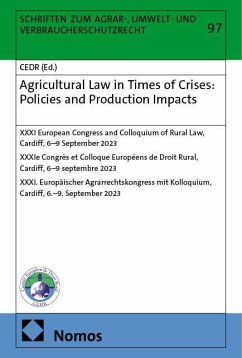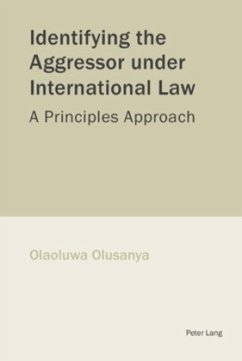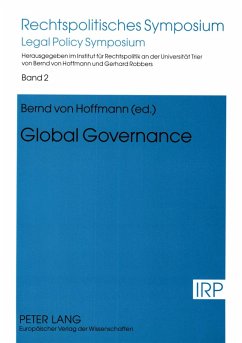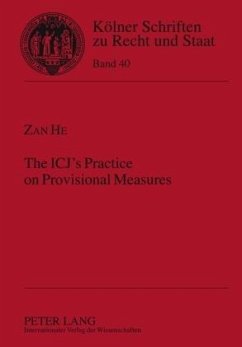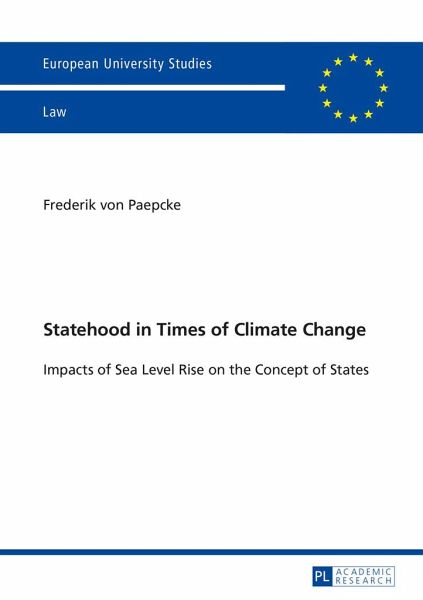
Statehood in Times of Climate Change
Impacts of Sea Level Rise on the Concept of States
Versandkostenfrei!
Versandfertig in 6-10 Tagen
73,30 €
inkl. MwSt.

PAYBACK Punkte
0 °P sammeln!
Climate change is a most complex, global challenge for the international community and for international law. The tremendous negotiation efforts in the last decades did not result in effective mitigation measures, leading to a rising need for adaptation. Amidst a myriad of challenges, some small island states face an existential threat of losing their state territory due to sea level rise, a situation without precedence. What happens to their statehood when they lose a constituent criterion of a state? This thesis argues for a claim to a new state territory. Due to the existence of such a clai...
Climate change is a most complex, global challenge for the international community and for international law. The tremendous negotiation efforts in the last decades did not result in effective mitigation measures, leading to a rising need for adaptation. Amidst a myriad of challenges, some small island states face an existential threat of losing their state territory due to sea level rise, a situation without precedence. What happens to their statehood when they lose a constituent criterion of a state? This thesis argues for a claim to a new state territory. Due to the existence of such a claim, island states continue to exist even when their territory is inundated, as the lack of a territory is not necessarily permanent.



